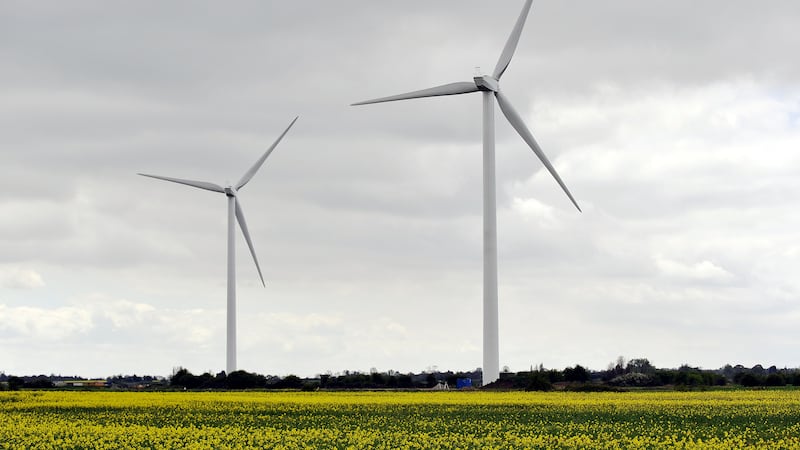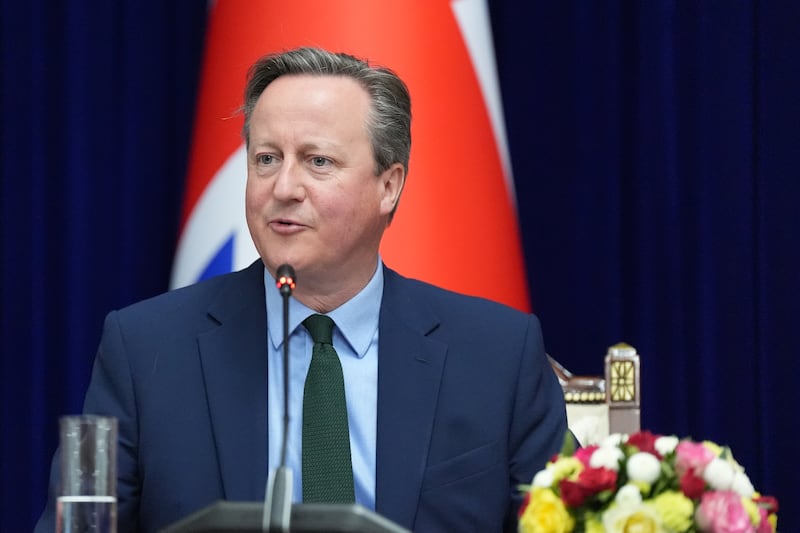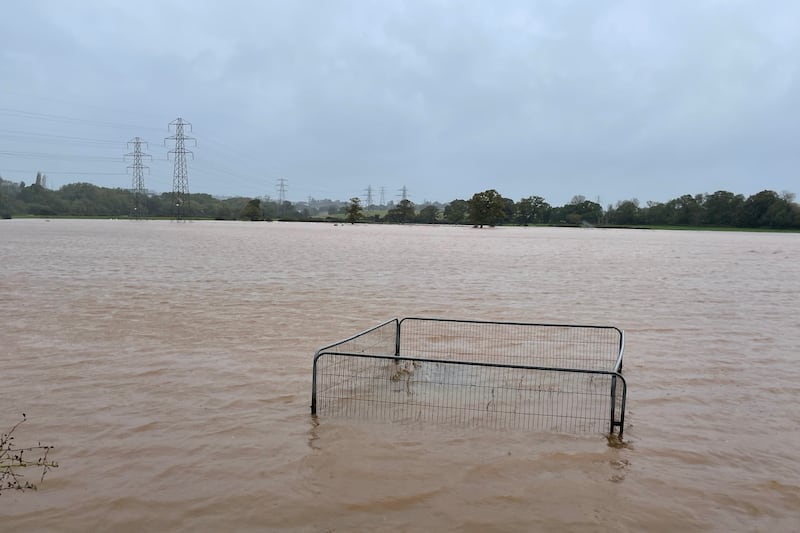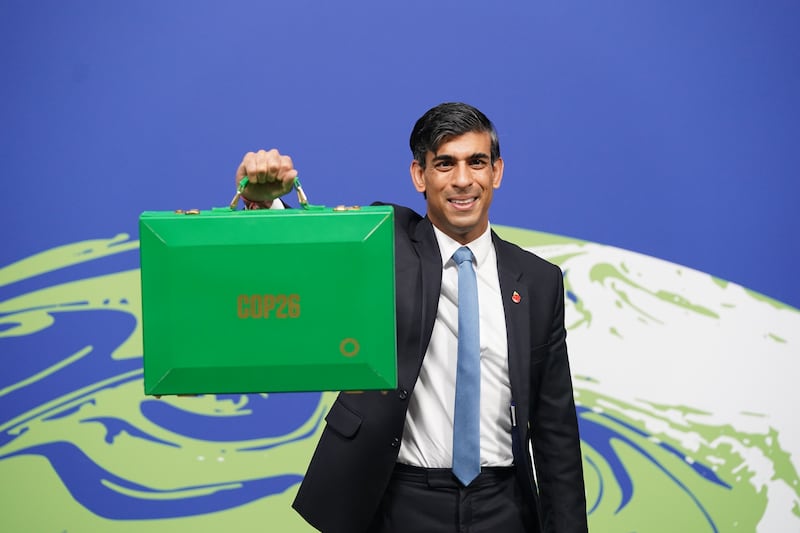Getting “contentious” onshore wind farm applications through the planning system is one of the barriers to Northern Ireland meeting its renewable energy targets, MPs have been told.
Senior civil servants said there was a need for urgency to enable the region to meet its obligations by 2030 set out under the 2022 Climate Change Act.
The Act commits Northern Ireland to net-zero carbon emissions by 2050.
It also states that greenhouse gas emissions must have reduced by at least 48% by 2030 and has a target that at least 80% of electricity consumption should be from renewable sources by the end of this decade.
- Andrew Muir tells MLAs of ‘sense of shame’ over environmental crisis at Lough NeaghOpens in new window
- All but one of the north's councils performs below average tackling climate changeOpens in new window
- Rising sea levels threaten Northern Ireland’s rail network, Translink report claimsOpens in new window
The Northern Ireland Affairs Committee travelled to Stormont as part of its investigation into renewable energy and net-zero targets in the region. MPs heard from permanent secretary at the Department for the Economy Ian Snowden, and Richard Rodgers, director of energy at the department.
Mr Snowden said there was a “fantastic opportunity” for Northern Ireland to achieve energy self-sufficiency.
He added: “We have the ability to generate sufficient energy and perhaps even become an exporter of energy because of our natural resources as we move away from fossil fuels.”
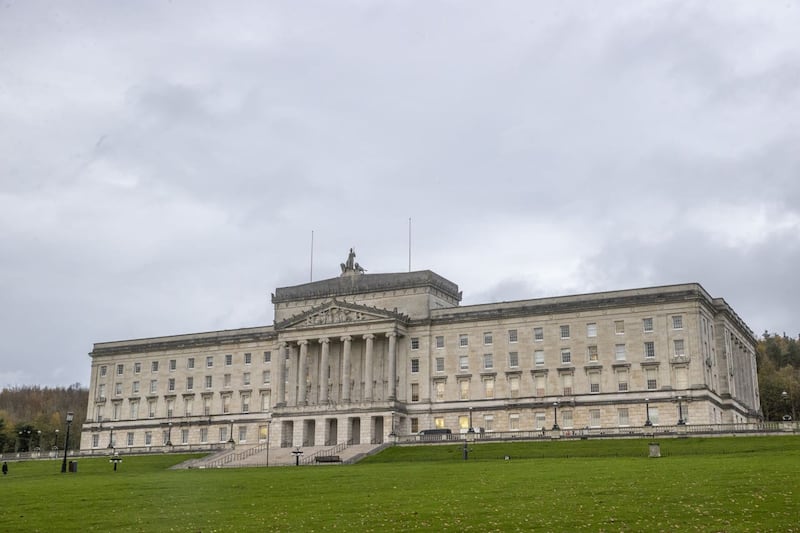
The senior civil servant said one of the challenges facing departments was “catching up” following a period of two years when the Assembly was suspended.
He said: “A number of policy changes need to be made, legislation needs to be taken forward and (there are) new schemes to incentivise and support renewable energy generation that we need to take forward.
“I think we have sight of a pipeline of energy generation schemes which would take us to 80% renewables by 2030.
“It will be extremely challenging to push all of that through in the timescale, but it is possible.”
Mr Rodgers added: “I would emphasise the need for urgency. We have got to 23% reduction on the emissions since 1990 and we have to get to 48% under the Climate Change Act.
“What we have done in 23 years has to be done in six years. We don’t have the time. It is all about urgency and redoubling efforts.”
SDLP MP Claire Hanna asked what the key barriers were to achieving the targets in the Climate Change Act.
Mr Snowden said: “To meet its targets of 80% by 2030, the only viable technological options are onshore wind and more solar, both of which will require planning permission.
“I think there is a real challenge for the planning system to balance the public interest that there is in achieving the renewable energy target against the concerns that there are in communities.
“The speed at which we can progress planning applications or indeed the ability to get them passed at all will be a significant barrier to us achieving that.
“There was quite a large renewable energy wind application in the Sperrins which was rejected a short time ago.
“We need to find ways we can progress those schemes through the planning system and get them delivered.”
He added: “Getting the contentious schemes through the system will be one of the significant barriers.”
